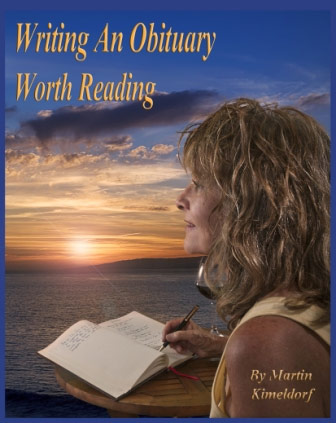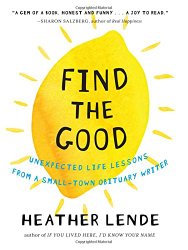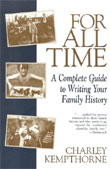The End of “The End”
January 19, 2018
David McConkey
This month’s issue of Maclean’s magazine had an obituary for their obituary page. The last-page feature, “The End,” had many readers, like me, starting the magazine on the last page and working our way backwards through the publication. “The End” featured a one-page obit of an “ordinary” person. After almost 500 of those obituaries, the magazine decided to do something else on their last page, starting with their first issue of 2018.“The End” began in 2005. One of the writers of those obituaries, Michael Friscolanti, penned a tribute to the feature, entitled What Writing 500 Obituaries Taught Us About Living. Friscolanti noted that the subjects chosen for the page were usually, as befitting “Canada's national current affairs and news magazine,” Canadians. Another thing: Friscolanti said that “most contained a poignant or ironic twist.” Like the “prairie boy so obsessed with the ocean that he built a ship in his Saskatchewan backyard, then drowned when he finally took it to sea.”
What can be learned from reading 500 obituaries?
Here are the lessons Friscolanti learned, forming what he called “the common threads of a life well-lived“:
• Find love, if possible, and follow that love wherever it leads.
• Be yourself, whoever that is.
• Money really does mean nothing.
• Don’t feel sorry for yourself.
“More than anything else,” Friscolanti concluded, “these beautiful stories made us contemplate our own stories.” Reading an obituary leads us to ask questions of ourselves, like: “Am I living as I should? Is there more I need to do, not just for myself, but for others?”
“The End” was similar to the features in a variety of publications that have focused – not on the famous – but on the everyday folks who make up a community, a city, a country. In the right hands, the description of an ordinary life can shed light on a greater story. And that greater story often comes back to us, and how we can best live our own lives.
Colorado newspaper reporter Jim Sheeler also wrote obituaries of ordinary people, which were then collected in the book, Obit: Inspiring Stories of Ordinary People Who Led Extraordinary Lives. “When I began writing obituaries,” he noted in the book’s introduction, “my goal was to write about people whose names had never appeared in the newspaper, to find the stories that had never been told – and, just as important, the lessons they left behind.”
Alaska newspaper reporter Heather Lende is another reporter who covered ordinary lives, in her case, of all the people who die in her small town.
“I understand why you may think that what I do is depressing,” Lende says about her work, “but compared to front-page news, most obituaries are downright inspirational. People lead all kinds of interesting and fulfilling lives.”
Lende titled her book describing her vocation, Find the Good: Unexpected Life lessons From a Small-Town Obituary Writer.
“The End” was certainly appreciated by readers. “Thank you, Maclean’s,” wrote one reader in a letter to the editor about the feature. Continued the reader, “The real heroes in this world are not movie stars, business tycoons and professional athletes. Rather they are the average Joes and Janes who painstakingly and clumsily plod through life, trying to better themselves, while gently sowing seeds of kindness, hope, and love.”
We readers of Maclean’s will miss “The End.” Fortunately, a number of the entries are still archived and can be read online. And hopefully we will be able to get information and inspiration from obituaries in various places in the years to come. Among these sources are the daily paper (both news stories and paid classifieds), as well as social media. These include the obits of famous celebrities and the more regular folks who from the backbone of society.
The author of Writing an Obituary Worth Reading, Martin Kimeldorf, points out that obituaries today need to be seen in larger social context. Even the obits of famous people are now written in a more informal, personal style. And more people are choosing to write their own obituaries. The obituary is yet another place where people are embracing the values of the new century: the authentic, the social, and the do-it-yourself.
“The contemporary obituary is emerging as a distinct literary genre,” Kimeldorf says. “These short gems are written in a conversational voice with everyday language, wit, and insight.”
Kimeldorf notes that our time has been called “a golden age of obituary writing.”
And that would mean, as well, it is a golden age for obituary reading.
* *
*
Ordinary Lives, Extraordinary Stories
Writing an Obituary Worth Reading
“Most Obituaries are Downright Inspirational”
From the Résumé to the Eulogy: Describing Ourselves
The Changing Conversations About Mortality
Six Words To Describe A Life?
Live Well, Do Good
Other Reviews
See Also:
Ordinary Lives, Extraordinary Stories
Writing an Obituary Worth Reading
“Most Obituaries are Downright Inspirational”
From the Résumé to the Eulogy: Describing Ourselves
The Changing Conversations About Mortality
Six Words To Describe A Life?
Live Well, Do Good
Other Reviews
More From Obituary Guide:
- Writing Your Own Obituary Offers Chance for Reflection
- How to Write a Legacy Letter (Ethical Will)
- A Family History Writing Workshop
- Helping Families "Most Satisfying Work" for Funeral Celebrant
- Be Prepared: Will, Health Care Directive (Living Will), and More
Books You May Find of Interest:
Not Quite What I Was Planning:
Six-Word Memoirs

Writing an Obituary Worth Reading:
A Guide to Writing a Fulfilling Life Review

Find the Good:
Unexpected Life lessons From a Small-Town
Obituary Writer

Having the Last Say:
Capturing Your Legacy in One Small Story

Obit:
Inspiring Stories of Ordinary People Who Led Extraordinary Lives
For All Time:
A Complete Guide to Writing Your Family History

Thrive:
The Third Metric to Redefining Success and Creating a Life of
Well-Being, Wisdom, and Wonder

Press Ctrl + D to Bookmark this page

